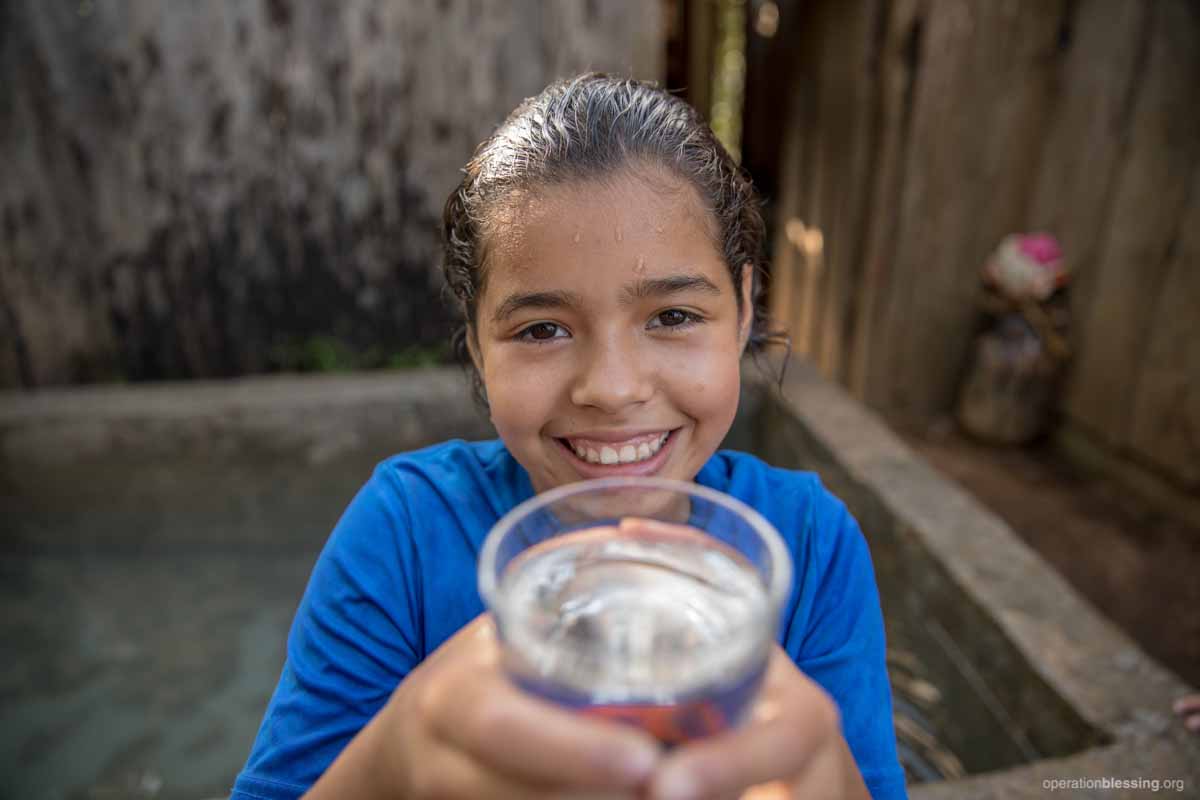There’s nothing more essential to human life than water. Without it, the human body can’t survive more than a few days at most. Though safe water is something often taken for granted in the western world, in developing nations water can be the single greatest need for the poor and vulnerable. In villages and communities without a safe water supply, residents often have to spend hours each day simply retrieving and transporting water back to their homes. This leaves substantially less time and energy available for preparing food or earning an income, helping perpetuate an ongoing cycle of poverty and suffering.
To make matters worse, the water sources that serve these impoverished communities are frequently contaminated. Bacteria, parasites, and other pathogens often infest the drinking water, but residents have no choice but to drink this filthy water. The resulting health problems are not only a further economic drag to suffering people groups, but can lead to chronic illness and even death. In fact, contaminated drinking water is estimated to cause over 500,000 deaths each year from diarrhea alone, according to the World Health Organization.
While many areas have endured an ongoing water crisis for generations, disasters can create safe water shortages in areas where water was previously plentiful, for instance in Puerto Rico after Hurricane Maria. For disaster victims working to rebuild, a lack of safe water can be a dangerous and crippling weight to bear.
For years, Operation Blessing has been committed to fighting the epidemic of unsafe water around the world. Along the way we’ve developed a powerful toolbox of safe water solutions that enable us to bring safe water to those in need, no matter their situation.
Safe Water Tools

Rural Community Water Systems
In many rural communities throughout Latin America, water sources may be available but they are not safe to drink from and are often difficult to access. OBI constructs concrete catchment systems—or reservoir tanks—to collect source water, apply purification techniques, and then construct a network of underground PVC pipes to plumb the water directly to village homes, giving continual and convenient access to safe water.
Safe Water Testing & Training
OBI staff visit our international operations to conduct water testing clinics and to familiarize indigenous OBI teams and partnering groups in the use of equipment in our ever-expanding Safe Water Toolbox.

Chlorine Manufacturing, Disinfection, Desalination, and Filtration Systems
Poor communities face a wide variety of water challenges that require customized solutions. In Africa, the Philippines, Haiti, and throughout Latin America, OBI is utilizing Sanilec-6 devices to manufacture chlorine to make bad water safe and provide an inexpensive way to stop contagious disease from spreading. One San-6 unit is currently servicing the largest hospital in Juba, South Sudan. Larger systems, installed by OBI in Puerto Rico’s Teacher’s Hospital and at Haiti’s newest and largest hospital in Mirebalais, process up to 1 million gallons a week. In over 20 countries, we have also utilized portable filtration/chlorination systems following disasters, each unit capable of purifying 600 gallons of water an hour. We also use reverse osmosis and desalination systems to turn salt water into sweet, safe water. And OBI also uses and distributes handheld, solar-powered chlorine generators called H2gO and MSR SE-200 Community Chlorine Makers.

Oasis Filtration System
OBI, working with Aqua Research, is developing a low cost, ultrafilter-based, water treatment system that can be used in low-income households and disaster relief settings. The 20-liter, plastic container incorporates an ultrafilter (removes all classes of microorganisms, including viruses, bacteria and protozoa) and a small hand-operated manual air pump that provides the low pressure needed to push the raw water (river, lake, stream, well, etc.) through the filter. Final testing is ongoing and Oasis will soon be saving lives.
Kohler Clarity Filtration System
A recently added component to the OBI Safe Water Toolbox that fits perfectly into our community development program in impoverished areas and disaster relief programs is the Kohler Clarity Filtration system (pictured below). The system is inexpensive and effective. Untreated water is poured into the upper reservoir where it slowly gravity feeds through a ceramic filter that removes over 99 percent of pathogens. Following recent Hurricane Maria, OBI is participating in a consortium in Puerto Rico that has distributed over 30,000 Clarity filters to public schools and communities all over the island.

